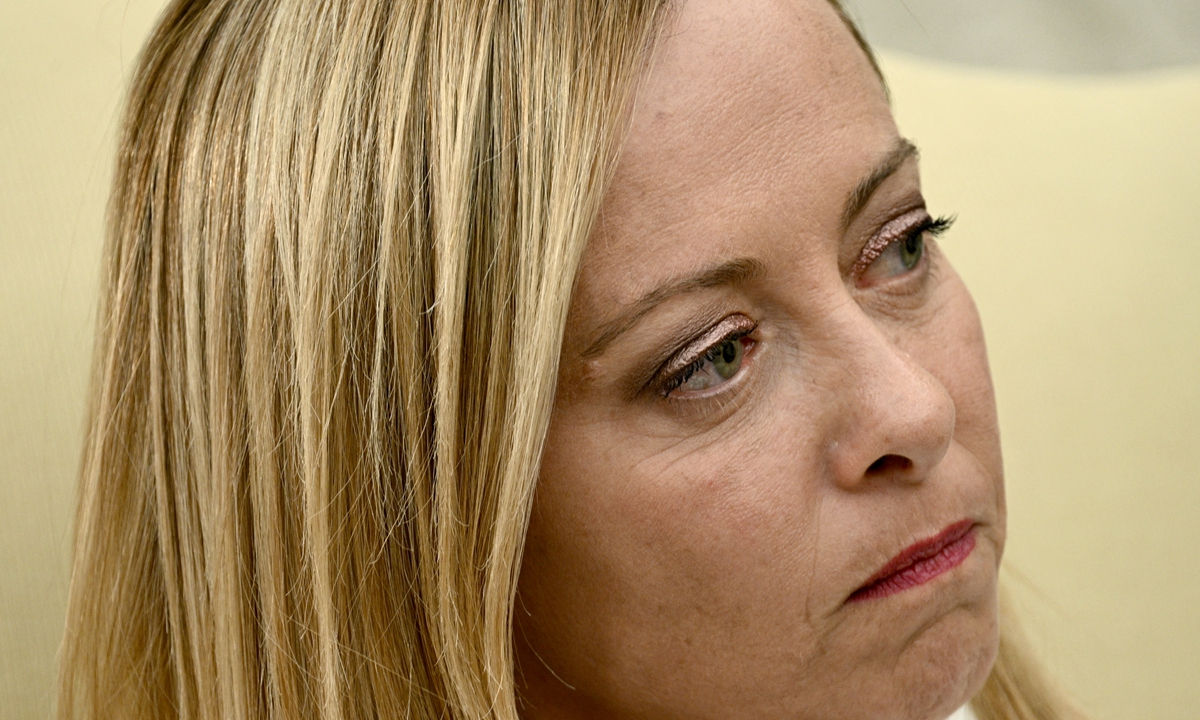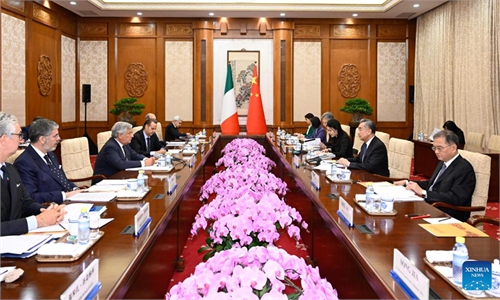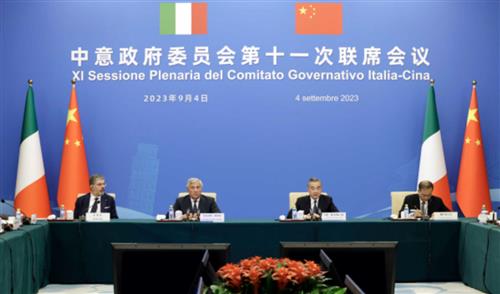Italian PM tries 'damage control' over reported BRI exit, stressing 'strong partnership' with Beijing

Italian Prime Minister Giorgia Meloni Photo:AFP
Italian Prime Minister Giorgia Meloni on Sunday doubled down on Rome's "strong partnership" with Beijing, saying it is more important than Belt and Road Initiative (BRI), after some Western media reported that Italy planned to quit BRI. Chinese experts said Italy's apparent attempts at "damage control" reflected the fact that the decision of a possible withdrawal was made under pressure from Washington instead of independently by the Italian government, and Italy is reluctant to let it sour its relationship with China.
Meloni made the remarks during a press conference at the end of the G20 Summit of the world's major economies in New Delhi on Sunday, after Italian media reported earlier that Italy would quit the BRI and seek to revitalize a strategic partnership agreement with China instead.
She noted on Sunday there was more to Italy's relationship with China than BRI, adding that a final decision on whether to leave BRI was still to be taken.
In response to Meloni's remarks, spokesperson of China's Ministry of Foreign Affairs Mao Ning said at a Monday conference that China and Italy are both ancient civilizations on either end of the ancient Silk Road. We can further deepen practical cooperation in various fields and work for further growth of our comprehensive strategic partnership.
It is obvious that the Italian government cannot maintain autonomy in making decisions on BRI deal, Wang Yiwei, director of the Institute of International Affairs at the Renmin University of China, told the Global Times, explaining that being the only G7 member that signed the BRI with China, Italy is under huge pressure from other members of the group, especially the US, to re-evaluate its links with BRI before Rome takes the G7 presidency next year.
Wang noted that Italy is torn over whether to exit BRI and has been mulling it for almost a year because "Italy doesn't want the decision to sour its ties with China, while it also hopes to respond to mounting pressure from the US, as if saying 'don't hurry us, we are doing it.'"
Meloni discussed BRI with US President Joe Biden when she traveled to the US in July. After a White House meeting with Biden, Meloni said her government had until December to make a decision on the BRI, and also announced she would soon travel to Beijing.
When asked what consequences Italy's possible withdrawal would have on the BRI, Mao said that China always believes that the BRI has been a very appealing international public product after it was launched 10 years ago. So far, more than 150 countries have joined the initiative, which has also brought benefits and welfare to them, so China believes that further tapping the cooperation potential meets the interests of these countries, said Mao.
Experts predicted that the withdrawal, if announced, will result in a short-term setback to bilateral ties, but the damage will not be "fundamentally detrimental," although some projects under the pact will be affected.
In what experts saw as "an obvious excuse," Meloni complained at G20 that "there are European nations which in recent years haven't been part of the Belt and Road but have been able to forge more favorable relations (with China) than we have sometimes managed."
Chinese experts disagreed. "Countries such as France and Germany do have a larger trade volume with China than Italy does because of their economic structure and size… After Italy joined BRI, the trade cooperation between China and Italy even experienced an uptick in the past three years despite disruptions from COVID-19 and the Russia-Ukraine crisis," said Wang, noting that it would be a "shortsighted" decision for Italy to pull out of BRI.
Data showed that the bilateral trade volume between Beijing and Rome totaled $77.9 billion in 2022, up 5.4 percent year on year.



